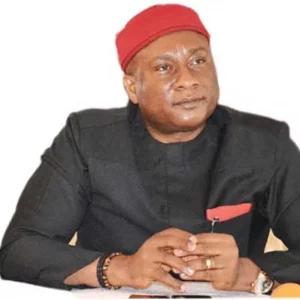A provocative new survey has reignited a long-standing debate: “Does size really matter?” According to findings from a UK-based cosmetic clinic, most women say a loud yes to the desire for men with more below the belt.
Nine out of 10 women surveyed by Moorgate Andrology Clinic in the UK admitted they wished their partners were better endowed—setting their ideal size at around 7.5 inches, notably larger than the global average of 5.5 inches. The clinic, which specialises in sexual cosmetic procedures, conducted the study across women aged 18 to their mid-60s.
But while studies like the Moorgate Andrology Clinic survey generate buzz in the UK, US and Europe, they raise a quieter, more complex conversation among African women. Unlike in Europe or the US, where clinical data on sexual preferences is more robust, sub-Saharan Africa has a dearth of rigorous, large-scale studies on female satisfaction, penile size, and preference.
David Mills, the clinic’s managing director, described the results as a long-overdue confirmation of what many have suspected: “To find that women want more length and girth reinforces what we’ve known for years—we just haven’t had hard data until now. It confirms that overall women are not telling the truth if they say penis size isn’t a factor.”
While the idea that “bigger is better” has long circulated in popular culture, the study lends statistical weight to the stereotype. It also adds momentum to an emerging trend: a sharp rise in male enhancement surgeries.
Urology specialists at the clinic say it isn’t just about size but about self-esteem. “For many men, being smaller can lead to anxiety, difficulty in relationships, and a loss of confidence. These issues can disrupt daily life,” one specialist remarked.
The survey involved 180 women who evaluated 27 realistic models ranging from 2 to 10 inches when erect. When asked to describe their ideal partner’s size, over 90 per cent said they preferred something larger than what they currently experience. Nearly half also wanted an increase in girth.
With the rise of dating apps—and the growing phenomenon of unsolicited explicit photos—the conversation around male body image has become increasingly public, and Mills believes that openness is overdue.
“If breast enhancement is socially accepted, why not penile enlargement? It’s the same conversation about body autonomy and satisfaction.”
From fat transfers and dermal fillers to more invasive procedures that alter suspensory ligaments, male enhancement options are more accessible than ever. Recent data from the U.S. shows a 250 per cent increase in such surgeries between 2019 and 2022.
But medical experts warn that larger isn’t always better. Conditions like vaginismus or menopause-related changes can make sex with oversized partners painful. When satisfaction leads to discomfort, it’s counterproductive.
The stigma surrounding male body insecurities is slowly eroding, but studies like this, however controversial, aim to normalise conversations around sexual satisfaction, anatomy, and personal choice. Mills hopes this is just the beginning.
“We’re entering a new era of honesty—where men and women can talk candidly about what they want, without shame.”
What African women say
A 2015 study published in PLOS ONE used 3D models to assess women’s preferences; it didn’t focus on African women specifically but found that women generally preferred slightly above-average sizes — around 6.3 to 6.4 inches in length and 4.8 to 5.0 inches in girth, depending on whether the partner was short-term or long-term. The study also noted that girth was often more important than length, especially for one-time partners.
Another study in The Journal of Sexual Medicine found that preferences varied widely across gender identities and cultural backgrounds, but African women were under-represented in the sample.
In Nigeria and many African countries, conversations around sexual satisfaction and body image tend to be shaped by religious and cultural norms which may discourage open discussions about sexual preferences. But with media influence and a growing access to cosmetic procedures, including penile enlargement, the tide may be changing.
As more women across Africa gain access to sexual health education and platforms for open dialogue, there is an emerging shift in how these preferences are discussed — and studied.
While physical preferences are real and varied, the average African woman says they just want a space to talk openly about sex without being labelled wayward or unserious. In essence, the issue isn’t always size; it’s silence.
The general consensus among African women is that society should stop treating sex like a secret and start treating it as a health issue. If men can talk about shapes and curves, women should be able to talk about what feels good — size included.
Stay ahead with the latest updates!
Join The Podium Media on WhatsApp for real-time news alerts, breaking stories, and exclusive content delivered straight to your phone. Don’t miss a headline — subscribe now!
Chat with Us on WhatsApp






